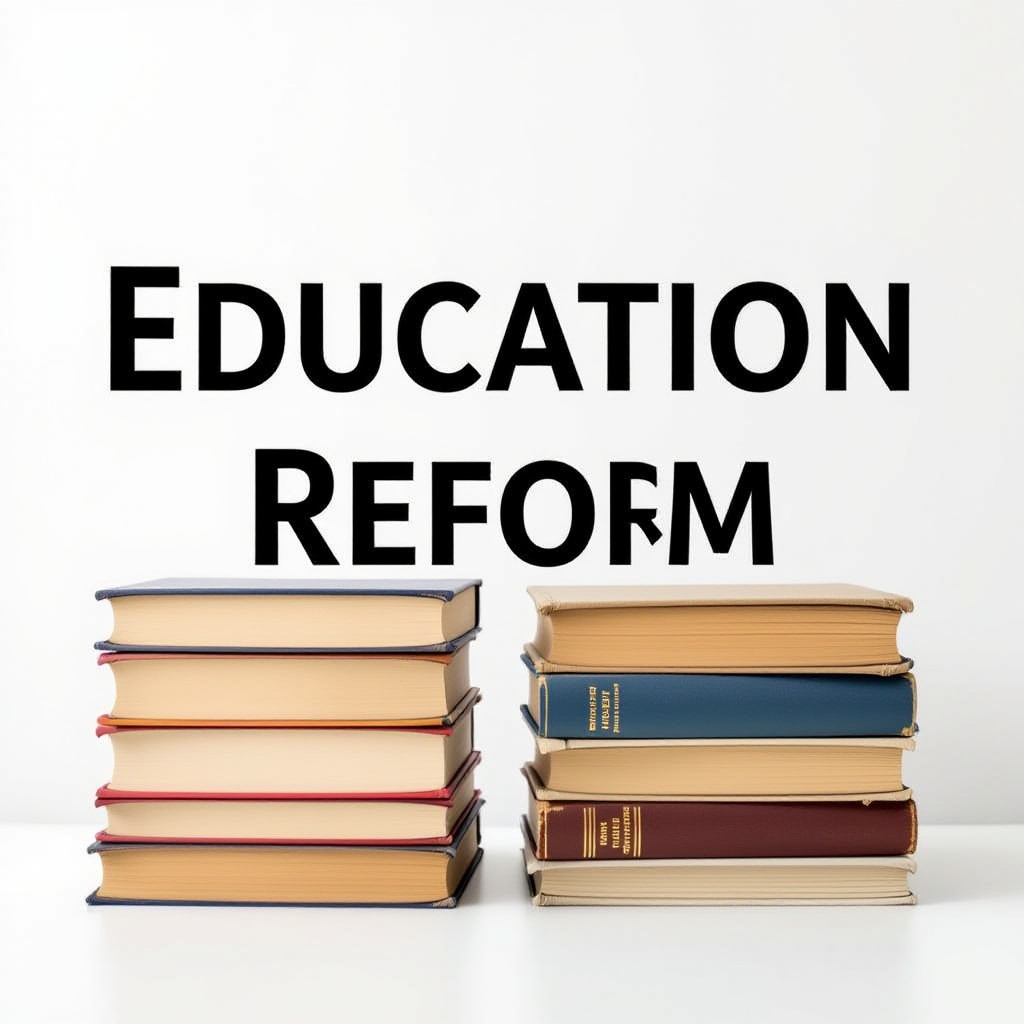Kuwait’s educational landscape is on the brink of a major transformation with the integration of Artificial Intelligence (AI) into the Grade 10 curriculum by 2025. This initiative, in line with Kuwait Vision 2035, aims to equip future generations with crucial skills and establish Kuwait as a frontrunner in education modernization to meet the demands of rapidly advancing technology.
Key Takeaways
- By 2025, AI will become part of the Grade 10 curriculum, marking a significant advancement in Kuwait’s educational reform.
- This step aligns with Kuwait Vision 2035, focusing on fostering a knowledge-based economy with technological progress at its core.
- Educational reform is well underway, with 60% of infrastructure and curriculum enhancements already in place to support AI learning.
- The AI curriculum will highlight crucial skills such as problem-solving, creativity, and data literacy to prepare students for the future.
- Kuwait’s strategic AI education initiative positions it alongside global leaders like Singapore and the UAE in embracing forward-thinking educational strategies.
Kuwait’s AI Curriculum Integration: Pioneering the Future of Education
Kuwait is making a major leap in educational innovation by adding Artificial Intelligence (AI) to the Grade 10 curriculum by 2025. This move is a highlight in the ongoing education reforms targeting a digital transformation within the nation’s learning environments. Already, 60% of a comprehensive reform initiative has been achieved. Key focus areas include enhancing smart school infrastructure, implementing digital upgrades, and updating the curriculum for Grades 1–9. These efforts build the foundation for integrating AI education into the senior school years.
The commitment aligns with Kuwait Vision 2035, a strategic plan that strives for technological leadership and nurtures a knowledge-based economy. By integrating AI into the curriculum, Kuwait is not only preparing students for future opportunities but also positioning itself as a forward-thinking educational leader.
Artificial Intelligence is expected to equip students with essential skills such as:
- Problem-solving: Engaging with AI technologies sharpens critical thinking.
- Creativity: Encourages innovative solutions using AI tools.
- Data literacy: Understanding data analytics and its applications in real-world scenarios.
These competencies aim to create future-ready students who can seamlessly transition into advanced educational settings or the workplace. By infusing AI topics, students gain insights into a field that will play a pivotal role in Kuwait’s economy, echoing the global shift towards digital expertise. More details about Kuwait Vision 2035 can be found on Kuwait’s official Vision 2035 site.

The Economics and Demand of AI Education
Kuwait’s technology market is booming, valued at $22.48 billion. With tech spending expected to surpass $5.5 billion by 2024, the sector is set for massive growth. By 2025, tech will contribute over 5% to Kuwait’s GDP, underscoring the economic importance of AI education reform. AI bootcamps are seeing a surge in demand, costing between $7,800 and $21,000. They boast impressive placement rates, with 78–90% of students landing jobs within six months, proving the strong need for AI expertise.
The Kuwait Civil Service Commission has also announced the creation of 24,000 new positions, with a significant portion in tech and AI fields. This development emphasizes the growing demand for skilled professionals in these areas. For more insights into AI’s impact, check out Emerj for industry analysis and trends.

Revamping the Learning Environment: Interactive and Innovative
Kuwait’s educational facilities are transforming with the installation of over 5,125 interactive screens in classrooms and labs. These screens support digital and interactive learning environments that engage students like never before. Such advancements illustrate the shift towards an innovative educational atmosphere that embraces e-learning.
To further boost this transformation, international partnerships play a pivotal role. Collaborations with corporations like Microsoft prove beneficial in improving teacher training programs. These partnerships aim to align Kuwait’s educational standards with global expectations, particularly reflecting the benchmarks set by the OECD.
Key Initiatives Include:
- Interactive Screens: Over 5,125 new interactive screens pave the way for an immersive learning experience.
- E-Learning Integration: Modern e-learning systems foster a more engaging and flexible learning process.
- Teacher Training: With Microsoft’s assistance, educators receive intensive training to effectively use these modern tools.
- Curriculum Alignment: Standardizing curriculums ensures they meet international benchmarks, enhancing education quality.
Digital learning in Kuwait takes a significant leap forward with these enhancements. The collaboration with tech leaders like Microsoft not only equips teachers with new skills but also ensures students are educated in an environment that reflects the latest global standards. Explore what the OECD’s educational strategies can further offer to create these future-ready environments.
AI Curriculum Design: Equipping Students for Tomorrow
The Grade 10 AI curriculum focuses on core AI concepts and machine learning principles, providing students with a solid foundation. They’ll gain competence in data literacy and coding skills, which are fundamental for problem-solving and algorithmic thinking. Understanding ethical AI use and its social impact ensures students are prepared for responsible technology use. Instructional tools amplify learning, offering interactive screens and industry-based modules for engaging, hands-on experiences. Access to real-world datasets enriches their learning experience.
Teachers undergo specialized training in advanced teaching techniques, empowering them to effectively support the curriculum. Platforms like Coursera often offer courses that align with this educational approach, providing resources for interested educators. Mastery of these concepts and tools readies students for future opportunities in AI. For an informative resource on coding skills progress, visit the Khan Academy website, which offers several programming courses to enhance learning.

Kuwait’s Position in Global Educational Trends
Kuwait stands shoulder to shoulder with global leaders such as Singapore and the UAE in adopting AI in education. This move not only prepares students for the future but also underscores the nation’s commitment to leading in future-ready education. By focusing on ethics, cybersecurity, and workforce transformation, Kuwait ensures students are equipped with essential skills and knowledge.
The country’s strategic plan involves active participation in AI conferences and fostering regional research collaboration. This collaborative approach allows students to engage in international forums, expanding their horizons and learning from global peers. An AI curriculum underscores the country’s dedication to aligning with global benchmarking standards like the OECD-PISA (OECD-PISA), aiming to prep students for top-tier performance.
These steps are set to give students a competitive advantage in the ever-changing job landscape, especially in fields experiencing rapid technological advancements. By prioritizing AI adoption in education, Kuwait not only aligns itself with worldwide educational trends but also empowers its students to be pioneers in technological innovation.
The focus on AI is a clear indicator that Kuwait is committed to positioning its next generation of students for success. The emphasis on conferences, research, and international engagement adds a dynamic layer to education, ensuring that AI is not just a subject but a vital part of students’ learning journeys.

Strategic National AI Goals: Looking Forward to 2028
Kuwait’s National AI Strategy from 2025 to 2028 sets an ambitious course, aiming to establish Kuwait as a key player in artificial intelligence within the region. By putting strategic initiatives in place, Kuwait is not only steering its economy towards growth but also fostering sustainable practices that resonate with global standards. Central to this vision is the responsible deployment of AI technologies. This approach ensures ethical use, aligned with international norms, thereby minimizing risks and maximizing benefits across industries.
Education reform stands as a cornerstone of this strategy. By integrating AI education into school curriculums, Kuwait plans to arm its youth with the skills needed for a future dominated by technology. These reforms are expected to lead to a wider, more inclusive economic development. The focus isn’t just on creating tech-savvy students but also on preparing them for jobs that don’t exist yet, which will power the economy forward.
Workforce empowerment through initiatives highlighting lifelong learning and retraining is paving the way for existing workers to adapt and thrive. By following these practices, Kuwait is ensuring its workforce remains competitive on a global scale. For readers interested in understanding how countries develop comprehensive technological strategies, a detailed overview can be found on UNESCO’s technology in education page.
By the time 2028 rolls around, Kuwait aims for a diverse, empowered workforce and an economy invigorated by AI, all while maintaining a firm ethical stance on the use of technology.
